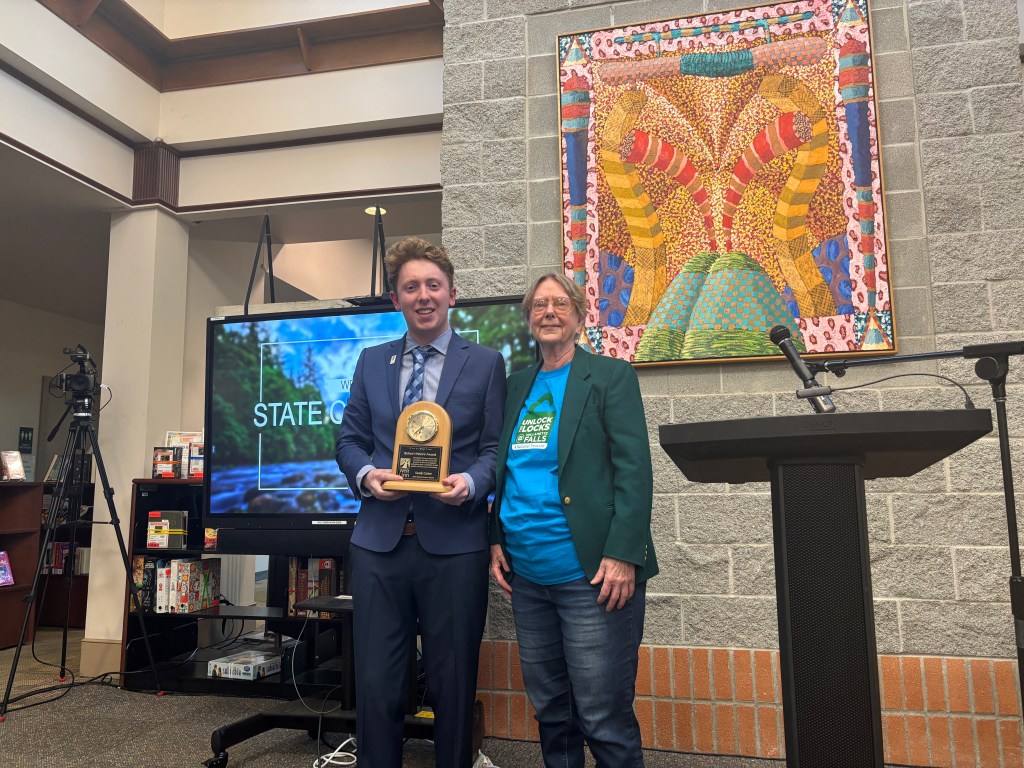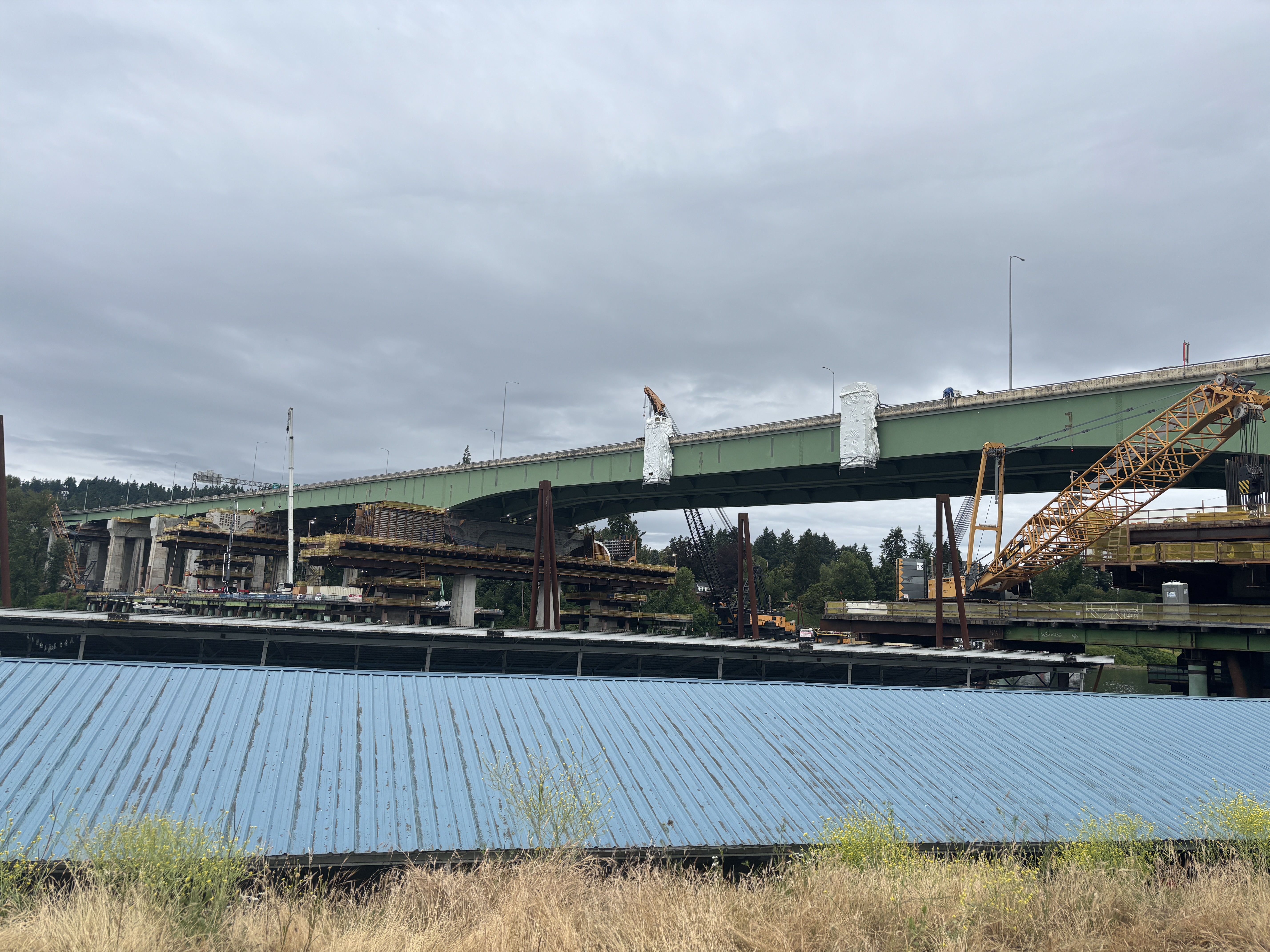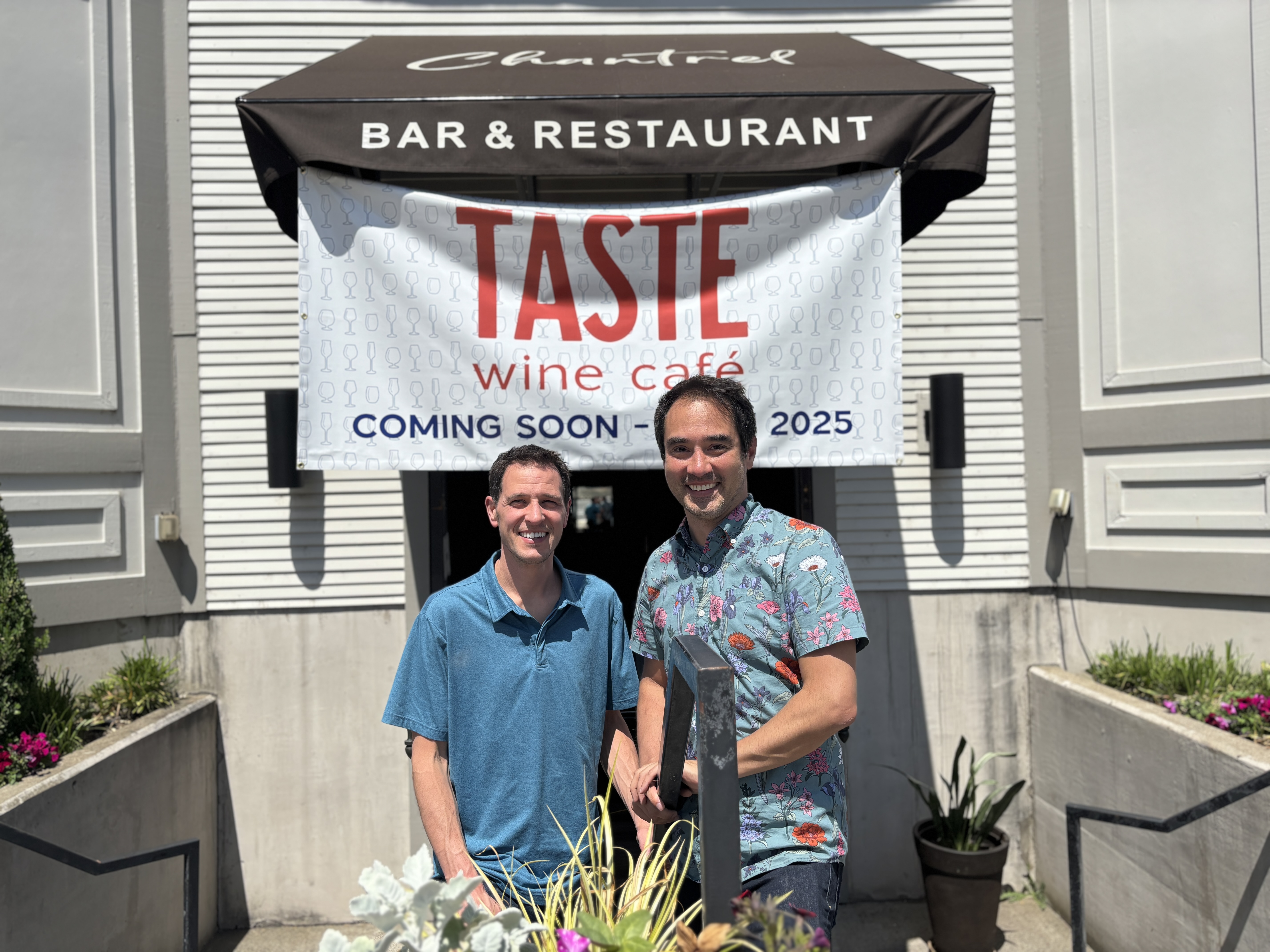Willamette Falls history advocate Sandy Carter honored with West Linn’s Robert Moore Award
Published 9:50 am Wednesday, May 7, 2025

- Mayor Rory Bialostosky presented Sandy Carter with this year's Robert Moore Award at the state of the city address. (Holly Bartholomew/West Linn Tidings)
Sandy Carter fell in love with local history after moving to West Linn’s Historic Willamette neighborhood in 1993. Since then, she’s become a tireless advocate of industrial heritage at Willamette Falls and has served with groups such as the Willamette Falls Heritage Foundation (now known as Advocates for Willamette Falls Heritage), Willamette Falls and Landings Heritage Area Coalition, Willamette Falls Locks Corporation (and now the Willamette Falls Locks Authority) and the One Willamette River Coalition.
It’s for these efforts that she was named this year’s winner of the Robert Moore Award. Mayor Rory Bialostosky presented Carter with the award — named for the city’s founder — at the State of the City address Tuesday, May 6.
For the past 12 years, the city has named the winner of the award for service to the community. Each year the previous recipients of the award form a committee to select the next Robert Moore Award honoree.
Carter was nominated by previous winner and fellow historical advocate Roger Shepherd.
“Sandy Carter loves the industrial heritage of the Willamette Falls area and has worked for over twenty years to preserve and educate the community about its importance to West Linn,” Shepherd told the Tidings. “Through the books she has written, community events like Lock Fest, and serving on numerous boards and committees, Sandy is a dedicated volunteer who is making a difference in our community and is a worthy recipient of the Robert Moore Award.”
Carter wants West Linn residents to know that the old industrial buildings along the Willamette River are not merely an eyesore — as some consider them — but an integral part of the city’s history.
“A lot of people move to West Linn because they like the schools and it seems safe, but they know nothing about the background of the city,” Carter said. “They want to see the Willamette but they think the 200 years of invention and hard work that built the houses in this town is ugly.”
Carter worked with the manager of the West Linn Paper Mill (now the Willamette Falls Paper Company) to bring a mill grindstone sculpture to Willamette Park as a public art project.
She also worked with other advocates to install an informational interpretative sign about the industrial history of the area at the Willamette Falls viewpoint along Highway 99E in Oregon City.
She wrote a book about the experiences of mill employees titled “$1.09 An Hour and Glad to Have it: Conversations with mid 20th Century Crown Zellerbach Millworkers.”
Carter initially became interested in the industrial history around Willamette Falls when the West Linn Paper Mill closed for about a year in 1996. At the time she was working with the heritage foundation, which had an office on the property of the Blue Heron Paper Mill across the river in Oregon City. As she wanted to see the West Linn mill reopened and the workers get their jobs back, she learned all she could about the 100-plus-year history of the mill and Portland General Electric’s hydroelectric facility next door.
Another key aspect of Willamette Falls history — and one that Carter is particularly passionate about — is the Willamette Falls Locks, on behalf of which she has staunchly advocated for more than 25 years.
In the early 2000s, when the locks — a series of hydraulic gates acting as stairsteps that ferried boats up and down the falls — were still open, Carter helped organize Lock Fest to give the community a chance to celebrate the rich history of the locks and their economic importance for the reason.
Since the locks closed in 2011 due to corrosion of the gates and other safety concerns, Carter has advocated for their reopening, making countless trips to Salem to request funding from legislators for repairs.
Carter considers her efforts for historical education about Willamette Falls to be her legacy, but ultimately the work makes her happy.
“I’m passionate,” she said. “It’s joy. When you’re doing it, it takes some time and stuff, but it is joy.”





